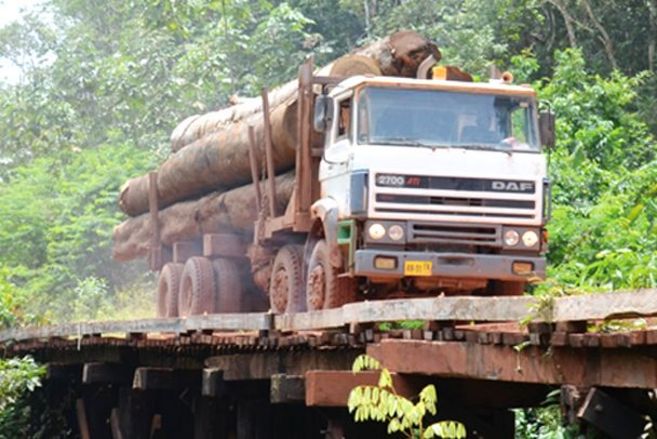Project
Poverty and deforestation
Livelihood strategies and income generation in community forest user groups in Nepal
What influences deforestation and forest degradation in poor tropical countries? Our research interest is focussed on rural areas with subsistence-oriented populations, where poverty goes along with deforestation and forest degradation.
Background and Objective
The Forest Principles request the sustainable management of forests (UNFF, NLBI), which includes the objectives for forest conservation and climate change mitigation. A main topic is the financing of sustainable forest management and forest conservation worldwide. At the Thünen-Institute the project „Improvement of the economic sustainability of natural forest management in the tropics” was conducted by assistance of international partners. In the frame of the project, livelihood strategies of rural households in Nepal were analysed. Thereby the households’ income generation from the forest and other land uses were considered. Two different systems of participatory forest management were compared (‘community forest user groups’ and ‘buffer zone community forest user groups’), which have different institutional setups. They are under sovereignty of different ministerial departments and have different management plans, user rights and duties.
Target Group
Policy and sciene in the areas of development aid and forest protection
Approach
We conducted a household survey in 358 rural households in eight participatory forest user groups in the district Chitwan in the lowlands of Nepal. In each community also the user group committee was interviewed.
Data and Methods
By the interviews we collected household- and individual-related data on the forest and non-forest related activities, on income, property, land use, labour and in kind input, as well as on yields. In the same line, data on land and commodity prices, market and barter values for the region were collected.
The data were analysed by descriptive analyses with regard to the households’ livelihood strategies, including income generation, land use decisions and intensities. Besides internal influences also external influencing factors, like geographical conditions, infrastructure connections and institutional restrictions were considered.
Results
The findings of the data analyses show great differences in the price and income structures of different regions (dependent on infrastructure connections like road access, markets and employment possibilities). These in turn show great influence on the households’ land use decisions.
The project was jointly organized by the University of Hamburg and the former Thünen Institute for World Forestry (Head: Prof. Dr. Michael Köhl).
Most households apply diversified livelihood strategies and combine different income sources (wage employment, self employment, and subsistence economy from agriculture, livestock keeping and natural resources, including the forest resource). As expected agriculture and livestock keeping play a major role in livelihood strategies. Yields from the forest are less profitable and have a lower share in the total household income.
The institutional regulations of the participatory forest user systems influence the user group members in their utilisation of the community forest land and other forest lands. Hence, significant higher forest utilisation intensity could be detected by the members of the ‘community forest user groups’ in comparison to the members of the ‘buffer zone community forest user groups’.
As a result of this explorative study we elaborated methods and data sets for a follow-up project on the analysis of potential drivers of forest degradation.
Thünen-Contact

Involved Thünen-Partners
Involved external Thünen-Partners
-
Trivuban University, Institute of Forestry (IoF)
(Pokhara, Nepal) -
Ministry of Forest and Soil Conservation (MFSC)
(Kathmandu, Nepal) -
Universität Hamburg
(Hamburg, Deutschland)
Funding Body
-
Federal Ministry of Agriculture, Food and Regional Identity (BMLEH)
(national, öffentlich)
Duration
1.2011 - 12.2013
More Information
Project status:
finished
List of Publications
- 0
Lax J, Köthke M (2017) Livelihood strategies and forest product utilisation of rural households in Nepal. Small Scale For 16(4):505-520, DOI:10.1007/s11842-017-9367-0
- 1
Lax J (2014) Community forestry - enhanced sustainability through involvement of local stakeholders : Chapter 5.4. In: Approaches for the improvement of the economic sustainability of natural forest management in the tropics – including REDD+ mechanism. Berlin: Rhombos-Verl, pp 130-134
- 2
Lax J (2014) Subsistence economy at the forest margin - an indispensable livelihood strategy : Chapter 4.4. In: Approaches for the improvement of the economic sustainability of natural forest management in the tropics – including REDD+ mechanism. Berlin: Rhombos-Verl, pp 92-96
- 3
Lax J, Krug J (2013) Livelihood assessment : a participatory tool for natural resource dependent communities. Hamburg: Johann Heinrich von Thünen-Institut, 22 p, Thünen Working Paper 7, DOI:10.3220/WP_7_2013







